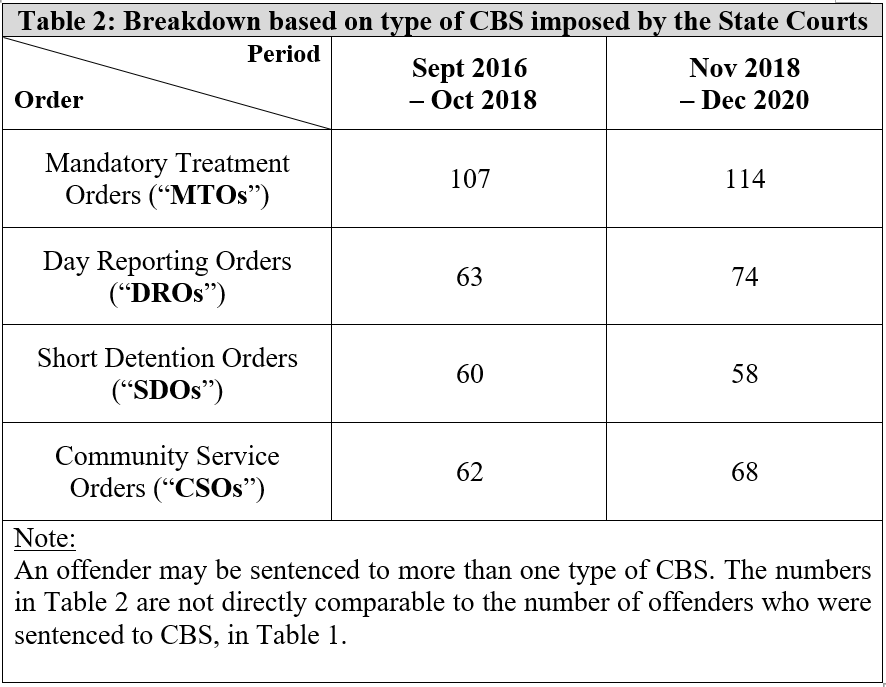Written Answer by Minister for Law, Mr K Shanmugam, to Parliamentary Question on Community Sentences Imposed since Enhancement of Community Sentencing Regime under Criminal Procedure Code
01 Feb 2021 Posted in Parliamentary speeches and responses
Mr Murali Pillai (Member of Parliament for Bukit Batok)
Question
To ask the Minister for Law since the enhancement of the community sentencing regime under the Criminal Procedure Code in 2018 (a) how many persons have to date been imposed community sentences and what is the breakdown for each type of community sentence; (b) whether the numbers represent an increase over the corresponding period before the enhancement of the regime; and (c) what steps have been taken to ensure that there are sufficient resources channelled to deal with these cases.
Written Answer:
- Our sentencing philosophy is aimed at deterrence, prevention, retribution and rehabilitation. A fair sentencing framework is one that enables the Court to deliver the appropriate mix of these four objectives on the specific facts of each case.
- Community-based sentences (“CBS”) were introduced in 2010 to make available a wider and more sophisticated range of sentencing options, so that the Courts have more flexibility in sentencing offences and offenders traditionally considered to be on the rehabilitation end of the spectrum. In 2018, the CBS regime was expanded in a controlled manner to allow more offenders to benefit from the rehabilitative opportunities CBS offered, while balancing this with the need to deter crime. The amendments to the CBS regime came into force on 31 October 2018. The Courts decide, based on the law and the specific facts of each case, whether CBS is an appropriate sentence.
- There was a slight increase in the number of cases where offenders were sentenced by the State Courts to CBS for the 26-month period from 1 November 2018 to 31 December 2020, compared to those sentenced from 1 September 2016 to 31 October 2018. This is shown in Table 1.
- The number of each type of CBS imposed by the State Courts from 1 November 2018 to 31 December 2020, compared to those from 1 September 2016 to 31 October 2018, is set out in Table 2.
- The agencies which administer CBS conduct regular reviews to ensure that adequate resources are available to carry out the various types of CBS. For instance, the Institute of Mental Health (“IMH”), which administers MTOs, increased the number of case managers, who assist in monitoring patients’ compliance with treatments and scheduled appointments, to prepare for the amendments to the CBS regime in 2018. The Singapore Prison Service (“SPS”), which administers DROs and SDOs, arranges for SPS officers to undergo regular training to update their skills and knowledge so that they are better equipped to supervise and support the offenders sentenced to DROs and SDOs, and also works with community partners, such as Family Service Centres, the National Addictions Management Service and the IMH, to facilitate the reintegration of offenders in selected cases.
- The Government will continue to monitor the CBS regime and ensure that it is adequately resourced.



